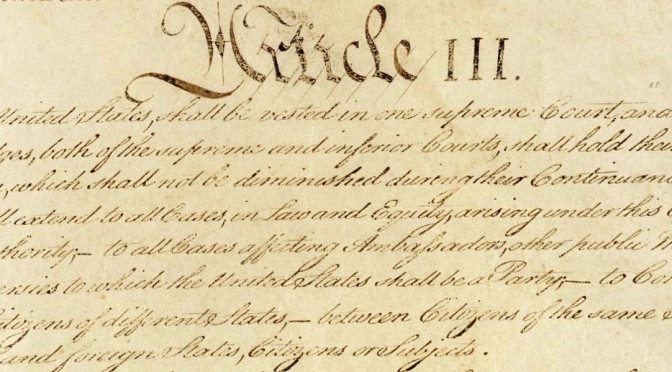The Honorable Lewis A. Kaplan draws on his voluminous experience on the federal bench to illuminate some of the special concerns that attend terrorism and national security cases. Kaplan reviews several judicial challenges unique to terrorism cases, including classified information issues and the use of defendants’ statements in the course of prosecution. He concludes that… Continue reading The Implications of Trying National Security Cases in Article III Courts
Tag: Detainee
Detention and Military Trial of Suspected Terrorists: Stretching Presidential Power
The system of detention and military trial authorized by President George W. Bush on November 13, 2001, and additional claimed authority to hold terrorist suspects indefinitely without process, have been litigated in several judicial circuits, moving from district courts to the Supreme Court and back down again. In 2006, these authorities returned to the Court for further exploration in Hamdan v. Rumsfeld. Regrettably, until very recently the separation of powers issues raised by the President’s initiatives received little attention from Congress, which, under the Constitution, has primary responsibility over military courts, tribunals “inferior to the supreme Court,” “Offenses against the Law of Nations,” the war power, and “Rules concerning Captures on Land and Water.” Because of congressional passivity, the principal checks on presidential power have been supplied instead by litigants and courts. The constitutional issues that emerge from this concentration of power in the presidency form the central theme of this article.
Litigating National Security Cases in the Aftermath of 9/11
The treacherous terrorist attacks against the United States on September 11, 2001, and the aftershocks that are still being felt years later, have had a profound effect on the legal landscape in the United States. In 9/11’s immediate aftermath, Congress, in a rare and fleeting moment of bipartisanship, gave the President far-reaching authority to combat terrorism.

